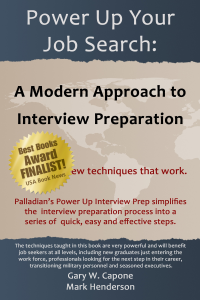Behavioral interviews ask situation based questions and focus on getting the job seeker to talk about specific examples of their performance. The technique was developed because past performance is the best indicator of future performance. If a hiring manager can assess how you performed in a number of key situations relevant to the job, they will be able to better assess your potential in that job.
The behavior techniques provide a great opportunity for a job seeker to set themselves apart from their competition. Creating this same impression in your resume can help propel you to the top of the pile. Right now, companies are receiving hundreds of resumes for every position. The vast majority of resumes look alike and do nothing to differentiate the job seeker. You can use the lessons from behavioral interviewing to upgrade your resume and make a powerful impression.
Focus on Accomplishments: The cornerstone of a successful behavioral interview is showing the hiring manager past successes. You need to do this on your resume too. The focus of your resume needs to be your successes and contributions in past positions.
Be Specific: Behavioral interviews ask questions designed to get the candidate to tell specific stories from their experience. Be specific on your resume too. A few very detailed stories of your past success will make the best impression.
Keep it Simple: The most important aspect of showing your accomplishments is not showing the biggest impact. The key element is making it easy for the hiring manager to picture what you did. This requires explaining the basic and providing simple, easy to understand examples.
Detailed Results: For an accomplishment to be impressive, you need to show the results you achieved. This requires specific numbers demonstrating the scope of the accomplishment.
Make it memorable: The accomplishments on your resume are the short highlight film clips that summarize your career. How are your favorite actors and athletes remembered? Often, an actor who starred in dozens of movies will be remembered for one movie, and possibly one scene from that movie. An athlete is often summarized by a single play. These isolated events create a power memory that makes it easy to remember the person. Most job seekers have completely forgettable resumes. A single accomplishment that creates a strong, specific image can make you memorable and give you an edge in your job search.
A few accomplishments explained in detail can set your resume apart from your competition. Most job seekers fail to show accomplishments on their resume. Adding a few accomplishments will greatly improve the success of your job search.
As important as it is to include examples of your accomplishments, you also need to tailor them to the position. List a few accomplishments that directly relate to the job you are applying for. Ideally, you will provide answers to the top two or three questions a hiring manager would ask in an interview.
Our book on Interview Preparation teaches behavioral interview techniques in a quick, easy to learn style. The book is set up with short chapters that each cover one step in the preparation process. Each chapter is followed by exercises for you to complete that move you toward your goal of mastering behavioral interviewing. Get our book on behavioral interviewing.
